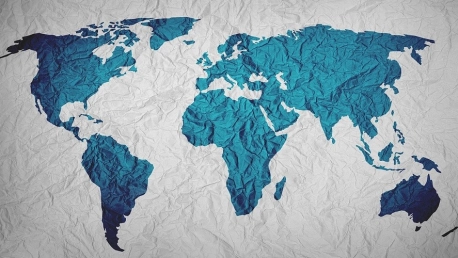Most people living in the US and other Western countries are experiencing a new age fueled by technological breakthroughs and digital tools. With smartphones and personal computers to guide their work and free time, GPS navigation apps that help them choose the best route possible when visiting a new city, it’s probably becoming increasingly difficult for them to imagine the real effects of geopolitical issues still plaguing many other regions of the world. However, the recent healthcare crisis proved the West is not immune to current global issues and that real balance remains fragile and hard to keep at times.
Bestselling author on foreign affairs, Robert D. Kaplan, once wrote that “technology hasn’t negated geography; it has only made it more precious and claustrophobic.” Nowhere is this more true than in the midst of the new crisis in Ukraine — a crisis that now features tens of thousands of Russian troops spread along the Ukrainian border. However, according to Kaplan’s predictions, this crisis is just one of the many geopolitical issues facing the world today. After the global pandemic disrupted the global economy in ways still hard to size up completely, issues like equilibrium in Europe, the Taiwan problem, and the volatile Middle East may become even more severe.
Maintaining balance in Europe
With high-ranking officials like British Prime Minister Boris Johnson said evidence suggests that Russia is now preparing for “the biggest war in Europe since 1945,” it comes as no surprise that equilibrium in Europe seems to hang in the balance. While Russian officials continue to deny their country is preparing to invade Ukraine, Johnson is concerned that any conflict could be grim and lengthy. He also says that Russian President Vladimir Putin may have been “thinking illogically about this” and not assessed the catastrophe ahead correctly. US President Joe Biden seems to share some of the British PM’s concerns, as he also said he is now convinced that Putin has already decided to invade.
To avoid the conflict, Biden recently spoke with President Emmanuel Macron of France, who is also thought to have made a last diplomatic attempt during a similar call with Putin. The US President and his Russian counterpart have also decided to meet.
The Taiwan issue and its numerous effects
As tensions seem to be mounting in Europe, another crisis is also concerning officials around the world. The matter of Taiwan, where Chinese President Xi Jinping might copy the actions of Vladimir Putin in Ukraine, is another problem now expected to reshape the international agenda in 2022. By the end of last year, concerns were already rising about the global effects of the increasing tensions over Taiwan, and new explicit reference to the prospect of war may now make matters even worse. According to The Guardian, China’s ambassador to the US has recently declared that the two countries may face a “military conflict” over the future of Taiwan.
Although matters in Ukraine and Taiwan do share some similarities – like the fact that both countries live in the shadow of a former or current superpower, there are also notable differences between them. That being said, Taiwanese officials are now concerned that the crisis in Ukraine could spur China.
The enduring crisis in the Middle East
Unlike Europe, which managed to avoid major conflicts since the end of World War II, the Middle East has become the arena of at least one war a decade ever since then. While the US withdrawal of military forces from Afghanistan was seen as an attempt to bring some stability to the region, the recent crisis in Ukraine is now expected to incite trouble yet again. According to a new report by the Middle East Institute (MEI) in Washington, a conflict in Ukraine has the potential to disrupt matters in the Middle East and North Africa (MENA) on several levels – concerning energy, as interruptions of global energy flows is now expected; concerning agriculture, because disruptions of trade and grain production in the Black Sea basin are also likely; and concerning refugees.
Moreover, political analysts are also sharing concerns that Russia might attempt to pressure Europe through a new wave of migrants coming from the Middle East, particularly from Libya. Considering the fact that some European countries are now preparing for a potential influx of millions of refugees from Ukraine, worries seem justified.
Solving geopolitical issues
Following the COVID-19 pandemic and its effects on the global economy, the world faces new and enduring geopolitical issues. With a serious crisis in Ukraine and tensions with Russia mounting, the US and Europe are preparing to face these issues with care. However, when it comes to deciding how to solve these somewhat confusing problems, Robert D. Kaplan’s words might provide Western officials with some ideas. The actions taken by Russian President Vladimir Putin “betray a singular truth, one that the US should remember as it looks outward and around the globe: international relations are still about who can do what to whom,” Kaplan said.









